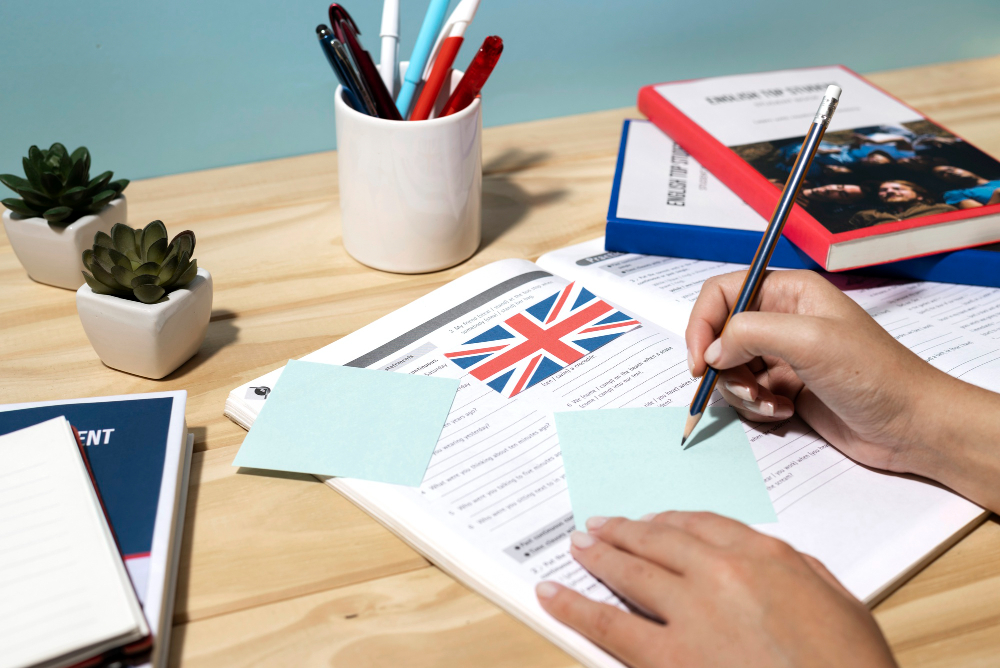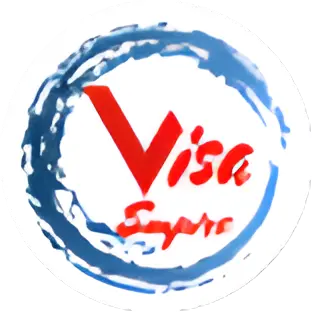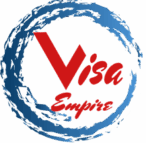Top Documents Required for Visa | Complete Checklist

Applying for a visa is one of the most important steps when planning to travel, study, or work abroad. While the process varies from country to country, one thing remains the same and that is your application is only as strong as the documents you provide.
Submitting the correct paperwork is the backbone of any successful application. Even a small mistake can lead to unwanted delays or even rejection.
In this guide, we’ll explore the documents required for visa approval across different categories. We will walk you through common visa application requirements, and provide you with a universal visa checklist to help you stay organized and stress-free.
Why Are Documents So Important for Visa Applications?
When you apply for a visa, immigration authorities evaluate your intent, eligibility, and financial stability through the paperwork you submit. Every detail matters because the decision to approve or deny your visa depends largely on whether you have met the country’s visa application requirements.
Common reasons for rejection often include:
- Missing or incomplete paperwork
- Expired documents
- Inconsistent information across forms
- Lack of financial proof
That’s why understanding the essential documents required for visa approval is the first step toward a hassle-free application.
Universal Documents Required for Visa Applications
Even though each country may have unique conditions, there are several standard documents required for visa processing that apply in almost every case. Let’s break them down:
1. Valid Passport
Your passport is the foundation of your application. Most countries require it to be valid for at least six months beyond your intended stay. You must ensure it has blank pages for visa stamps.
2. Visa Application Form
This form (whether online or paper-based) serves as the official request to enter the country. Accuracy is quite critical in it. Even small mistakes can cause issues. Thus, you must ensure that all entries match exactly with your passport details.
3. Passport-Sized Photographs
Photos must adhere to strict specifications, such as background color, size, and facial expression. Always check the embassy’s photo requirements before submitting.
4. Proof of Travel Itinerary
Consulates often require details of your travel plans. Those include flight bookings or a day-to-day itinerary. This shows your intention to return home after your trip.
5. Proof of Accommodation
Authorities want to know where you’ll stay during your visit. This can be hotel reservations, an invitation letter from a host, or a rental agreement.
6. Financial Proof
This has to be one of the most crucial visa application requirements. Financial documents prove that you can support yourself abroad. These may include:
- Recent bank statements
- Pay slips from your employer
- Sponsorship letters (if someone else is funding your trip)
7. Travel Insurance
For many countries, especially Schengen states, travel insurance is compulsory. It must cover medical expenses, emergencies, and repatriation.
8. Health and Vaccination Certificates
Depending on the country, you may need specific vaccination certificates, such as yellow fever or COVID-19. Some nations also require a recent medical examination report.
9. Employment or Student Documents
If you’re applying for a work or study visa, additional paperwork is required. It includes:
- Job offer letter or employment contract
- Admission letter from a recognized university
- Proof of previous academic or professional qualifications
10. Cover Letter or Statement of Purpose
This document allows you to explain your intent clearly to the visa officer. It should outline the purpose of your travel, your planned activities, and how you will fund your stay.
Country-Specific Visa Application Requirements
While the above is a universal visa checklist, many countries require additional documentation. Let’s look at a few examples:
- Australia: Student visas often require a Genuine Temporary Entrant (GTE) statement, outlining why you want to study there.
- United States: Applicants may need the DS-160 confirmation page, SEVIS fee receipt (for students), and proof of ties to their home country.
- Schengen Zone (Europe): Mandatory travel insurance with a minimum coverage of €30,000. You may also need proof of civil status (marriage or birth certificates).
- Canada: Biometrics (fingerprints and photos) are required, along with proof that you will return to your home country after your stay.
This is why it’s vital to check the embassy or immigration authority’s website of your destination before applying.
The Ultimate Visa Checklist
To simplify the process, here’s a universal visa checklist you can use when preparing your application:
- Valid passport (minimum 6 months before expiry)
- Completed visa application form
- Passport-sized photos (as per embassy guidelines)
- Flight itinerary or bookings
- Proof of accommodation
- Financial proof (bank statements, salary slips, sponsorship letters)
- Travel insurance (if required)
- Health/vaccination certificates
- Employment or student-related documents
- Cover letter or statement of purpose
Pro Tip: Keep both originals and photocopies of every document. Many embassies require you to submit copies while presenting originals for verification.
How to Organize Your Visa Documents
One of the biggest challenges applicants face is managing so many papers at once. Here’s how to keep your visa application requirements organized:
1. Categorize Documents – Divide them into identity, financial, health, and travel-related sections.
2. Use Folders – Label physical folders for each category, and carry them to your interview.
3. Keep Digital Copies – Scan all documents and save them in secure cloud storage for easy access.
4. Double-Check Embassy Guidelines – Requirements can change, so always verify the latest checklist from the official website.
Common Mistakes to Avoid
Even strong applications get rejected due to small oversights. Here are some frequent mistakes to watch out for:
- Submitting expired passports or outdated documents
- Forgetting to attach the required financial proof
- Using photographs that don’t meet size/background specifications
- Skipping translations for documents not in English
- Leaving sections of the application form blank
Avoiding these errors not only strengthens your case but also speeds up processing times.
Pro Tips for a Smooth Visa Application
- Apply at least 2–3 months before your travel date
- Keep your visa checklist updated as per the latest embassy guidelines
- Prepare extra copies of critical documents (like bank statements and ID proofs)
- Arrange documents in the order listed by the embassy
- If in doubt, seek professional guidance. It becomes crucial especially when you are applying for work, student, or migration visas.
Final Thoughts
Navigating the visa application requirements can seem overwhelming at first, but with preparation and organization, the process becomes much easier. By understanding the universal documents required for visa approval and following a detailed visa checklist, you’ll avoid unnecessary delays and improve your chances of success.
You must remember that every country has its own rules. However, the foundation of a strong visa application is the same. It needs to be complete, accurate, and well-organized paperwork. If you’re unsure or need expert support, professional visa consultants and migration experts can guide you through the process and help you achieve your travel, study, or work goals abroad.
Looking to simplify your visa journey?
Preparing your visa checklist and meeting all visa application requirements can be overwhelming indeed, but you don’t have to do it alone. Visa Empire is here to guide you every step of the way. Our team of experts happen to be the best migration agents in Perth. With us by your side, you can rest assured that your application stands the best chance of success.
Contact us today and take the first step toward a smooth and successful visa application.
Frequently Asked Questions (FAQs)
1. What documents are required for a visa application?
The documents required for visa applications may vary depending on the country and type of visa, but the most common ones include a valid passport, recent photographs, completed visa application form, proof of financial stability, travel itinerary, proof of accommodation, and supporting documents like employment letters, educational certificates, or invitation letters. Always check the official visa checklist of the destination country before applying.
2. Is a 10th marksheet required for a visa?
Generally, a 10th marksheet is not a mandatory visa application requirement. However, for student visas or certain skilled migration visas, academic records including your 10th and 12th certificates may be requested as part of supporting documentation.
3. Is a birth certificate needed for a visa?
Yes, in many cases a birth certificate is required, especially if you are applying for dependent visas, family visas, or when age verification is needed. It may not always be compulsory for tourist visas but is an important document for most long-term visa categories.
4. Is a marriage certificate necessary for a visa?
A marriage certificate is necessary only if you are applying for a spouse visa, dependent visa, or any category where your marital status needs to be proven. For tourist or work visas, it is usually not part of the standard visa application requirements.
5. What is the maximum duration of a visa?
The maximum duration of a visa depends entirely on the type of visa and the issuing country. Tourist visas generally range from 30 days to 10 years (with multiple entries in some cases), while work and residency visas can last several years depending on the contract and country regulations.
6. How many months does a visa take?
The visa processing time varies widely. Tourist visas may take anywhere from a few days to a few weeks, while student, work, or migration visas can take several months. Always factor in potential delays by checking the embassy or consulate’s official timeline before applying.



